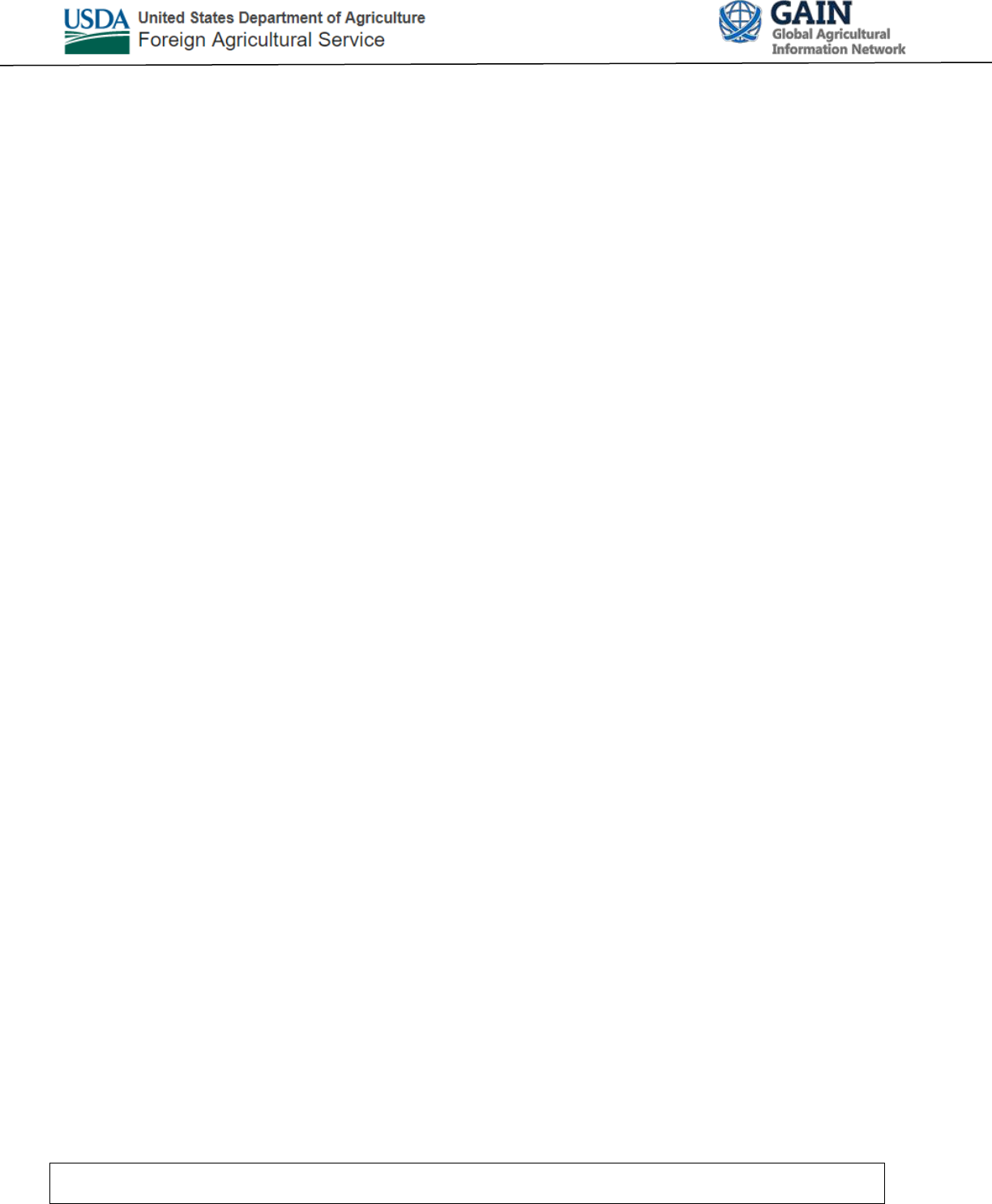
THIS REPORT CONTAINS ASSESSMENTS OF COMMODITY AND TRADE ISSUES MADE BY USDA STAFF AND NOT NECESSARILY
STATEMENTS OF OFFICIAL U.S. GOVERNMENT POLICY
Required Report: Required - Public Distribution Date: October 11, 2022
Report Number: MY2022-0011
Report Name: Food and Agricultural Import Regulations and Standards
Export Certificate Report
Country: Malaysia
Post: Kuala Lumpur
Report Category: FAIRS Export Certificate Report
Prepared By: Rowena Ngumbang
Approved By: Timothy Harrison
Report Highlights:
This report provides information on the export certification requirements of the Government of
Malaysia. This report supplements the Malaysia Food and Agricultural Import Regulations and
Standards (FAIRS) – Country Report 2022.
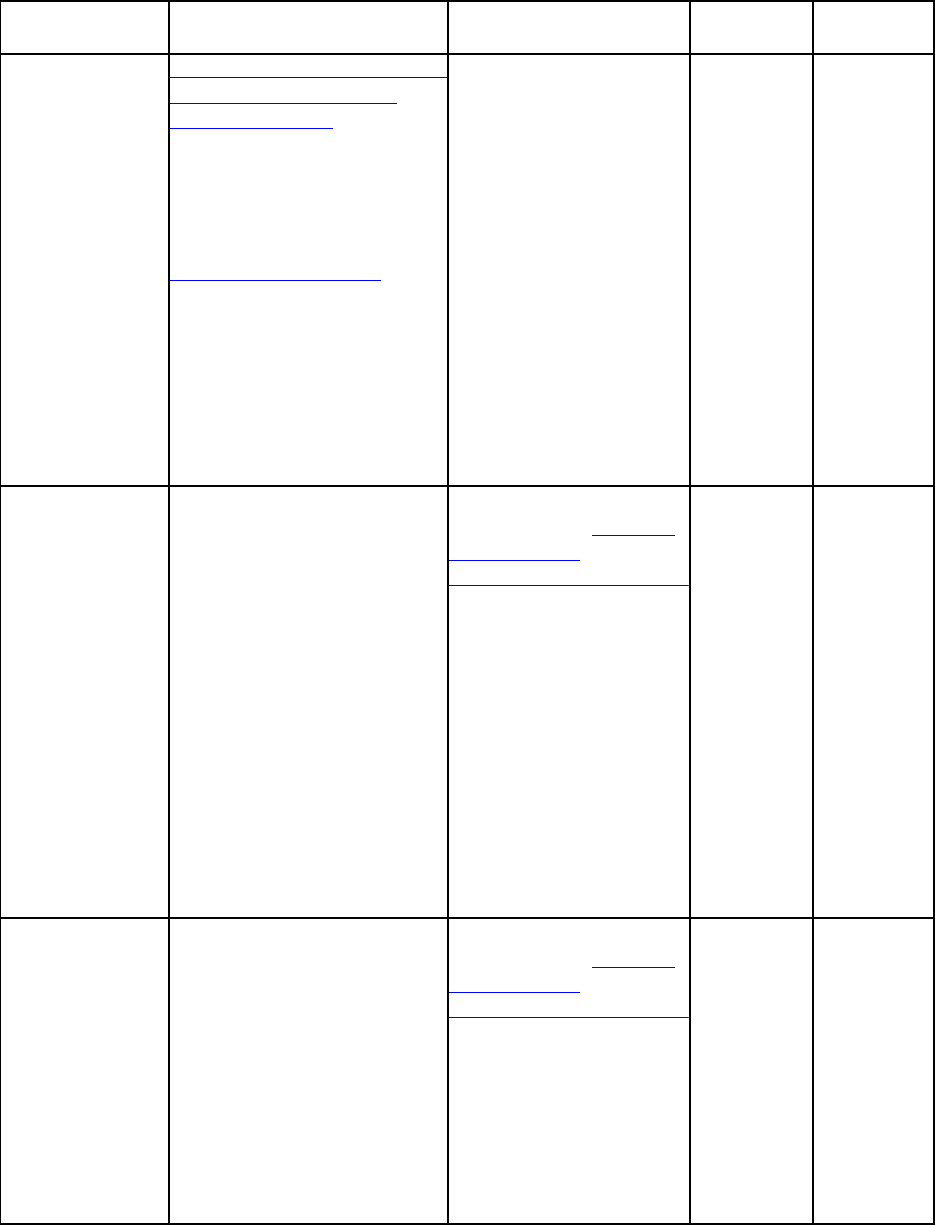
2
Section I. List of All Export Certificates Required by Malaysia:
Product(s)
Title of Certificate
Attestation Required on
Certificate
Purpose
Requesting
Ministry
(1) Milk and Milk
products
Sanitary Certificate for Exports
from USDA, Agricultural
Marketing Service
Halal Export Certificate
Additional certificate for soft
cheeses:
Certificate of Analysis
for Listeria Monocytogenes by
Competent Authority of the
Exporting Country
Please refer to Section III:
Specific Attestations
Required on Export
Certificate(s)
Health &
Veterinary
Halal
Certification
Ministry of
Agriculture,
Malaysia
&
Ministry of
Health,
Malaysia
Department
of Islamic
Development
Malaysia
(JAKIM)
(2) Beef
Meat and Poultry Export
Certificate of Wholesomeness
Certificate
(FSIS Form 9060-5)
Halal Export Certificate
Please refer to the FSIS
Export Library: Meat and
Poultry Export
Requirements for Malaysia
Health &
Veterinary
Halal
Certification
Ministry of
Agriculture,
Malaysia
&
Ministry of
Health,
Malaysia
Department
of Islamic
Development
Malaysia
(JAKIM)
(3) Poultry bird
carcasses,
products or part
thereof (frozen,
dried, dehydrated,
salted, pickled,
smoked or value-
added)
Meat and Poultry Export
Certificate of Wholesomeness
(FSIS Form 9060-5)
Please refer to FSIS
Export Library: Meat and
Poultry Export
Requirements for Malaysia
Veterinary
& Health
Ministry of
Agriculture,
Malaysia
&
Ministry of
Health,
Malaysia
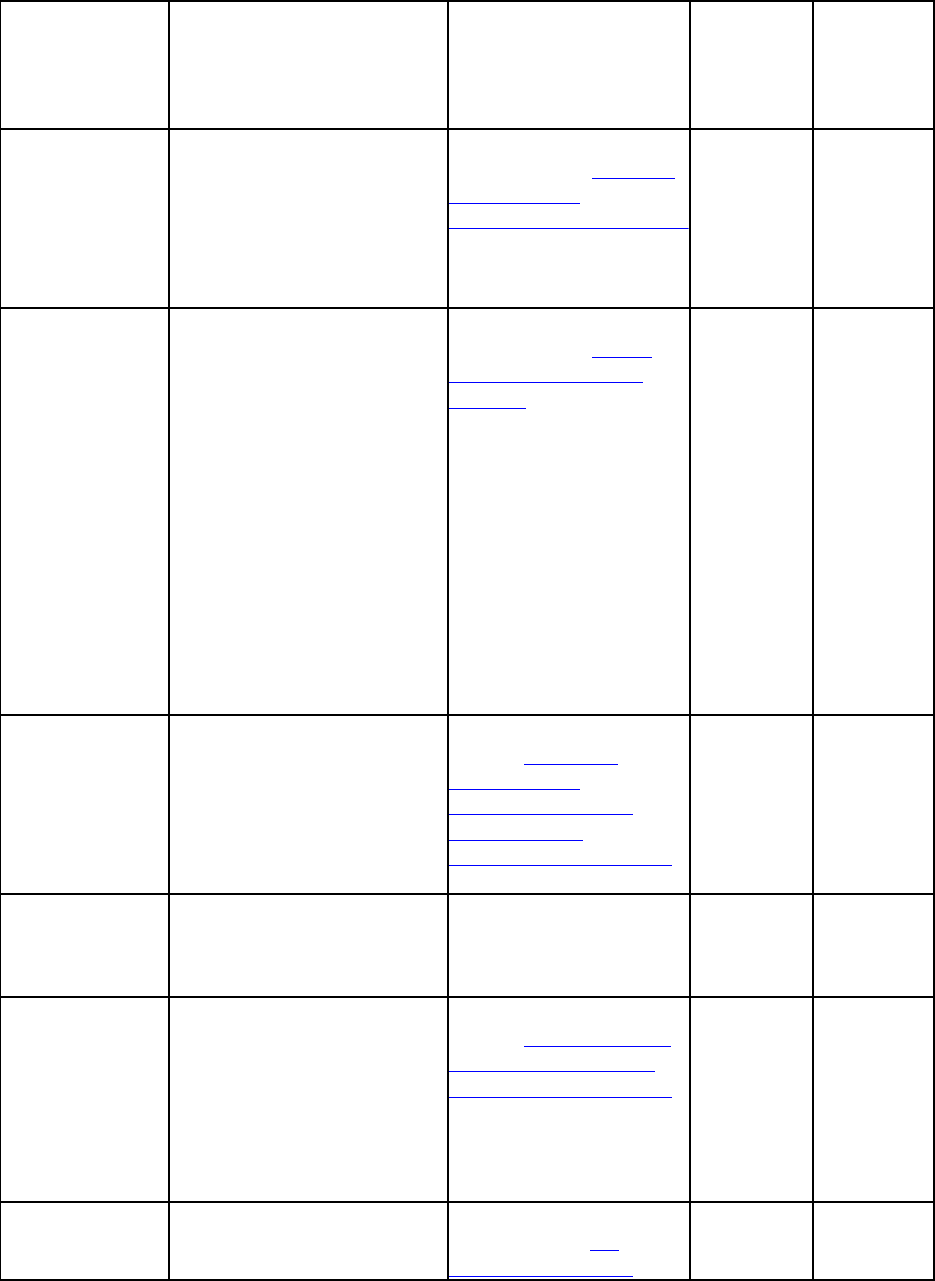
3
Halal Export Certificate
Halal
Certification
Department
of Islamic
Development
Malaysia
(JAKIM)
(4) Pork or pork
products thereof
(frozen, dried,
dehydrated, salted,
pickled, smoked
or value-added)
Veterinary Health Certificate
Please refer to FSIS
Export Library: Meat and
Poultry Export
Requirements for Malaysia
Veterinary
Ministry of
Agriculture,
Malaysia
&
Ministry of
Health,
Malaysia
(5) Eggs: table
eggs; frozen liquid
eggs; salted,
pickled or century
eggs; egg powder,
or egg products
thereof
Veterinary Health Certificate
Halal Export Certificate
(for liquid eggs & egg powder)
Please refer to FSIS
Export Library: Export
Requirements for Egg
Products
Veterinary
Halal
Certification
Ministry of
Agriculture,
Malaysia
Department
of Islamic
Development
Malaysia
(JAKIM)
(6) Pet food
Export Certificate for Animal
Products
Please refer to USDA/
APHIS: Veterinary
Services’ (VS)
International Animal
Product Export
Regulations for Malaysia
Veterinary
Ministry of
Agriculture,
Malaysia
(7) Day-old
Chicks
Veterinary Health Certificate
Please Refer to Section III:
Specific Attestations
Required on Export
Certificate(s)
Veterinary
Ministry of
Agriculture,
Malaysia
(8) Animal by-
products;
bone meal/flour,
meat meal, horn,
hoof, feather or
blood meal
of caprine, ovine
or avian origin
Veterinary Health Certificate
Please refer to USDA/
APHIS: VS International
Animal Product Export
Regulations for Malaysia
Veterinary
Ministry of
Agriculture,
Malaysia
(9) Swine
(breeding)
Veterinary Health Certificate
Please refer to
USDA/APHIS: VS
International Animal
Veterinary
Ministry of
Agriculture,
Malaysia
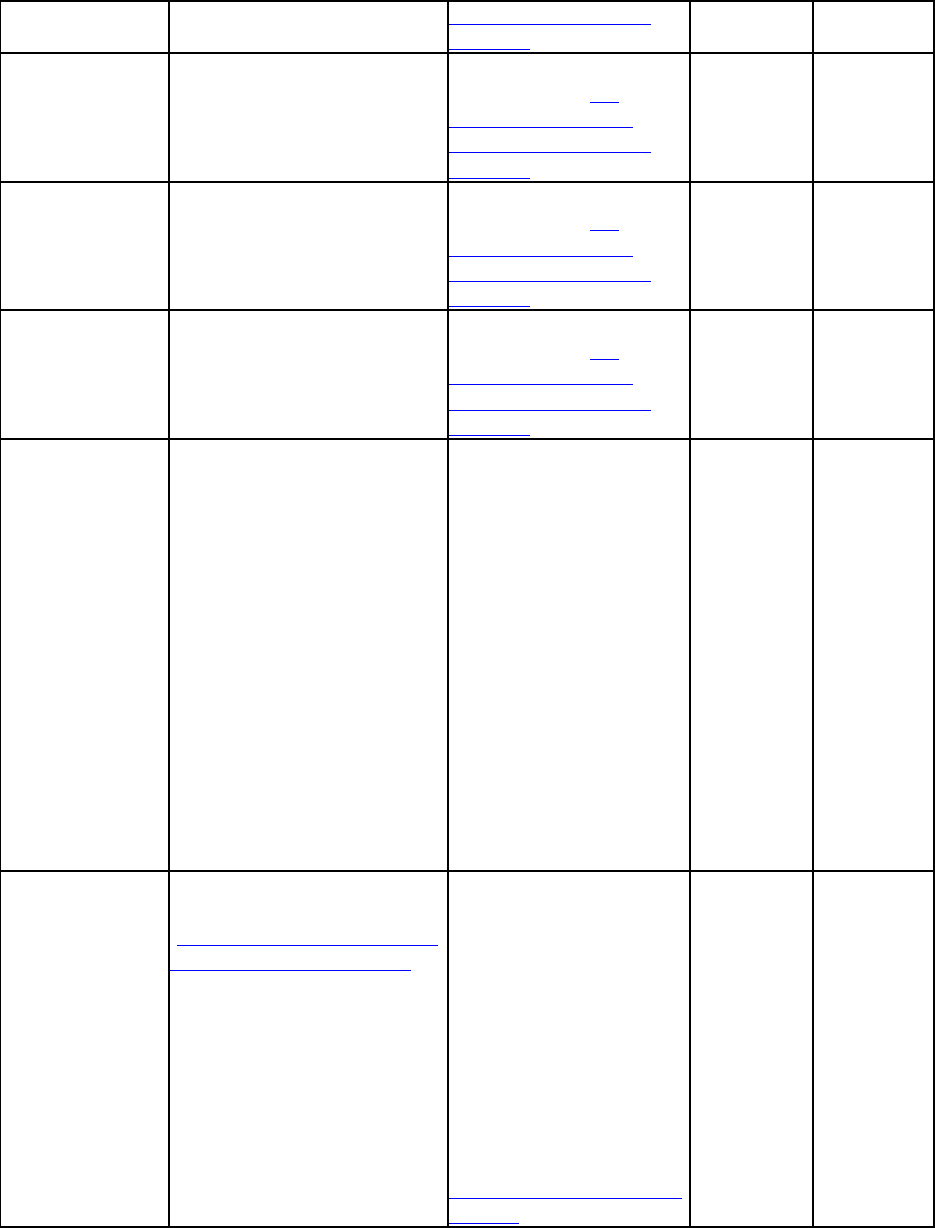
4
Export Regulations for
Malaysia
(10) Porcine
Semen
Veterinary Health Certificate
Please refer to
USDA/APHIS: VS
International Animal
Export Regulations for
Malaysia
Veterinary
Ministry of
Agriculture,
Malaysia
(11) Rabbits
Veterinary Health Certificate
Please refer to
USDA/APHIS: VS
International Animal
Export Regulations for
Malaysia
Veterinary
Ministry of
Agriculture,
Malaysia
(12) Horses
Veterinary Health Certificate
Please refer to
USDA/APHIS: VS
International Animal
Export Regulations for
Malaysia
Veterinary
Ministry of
Agriculture,
Malaysia
(13) Fish and
seafood products
Health Certificate
A declaration or statement
by Federal or State Health
Agency that the
consignment is safe for
human consumption.
For shrimps and prawns,
crab and crab products,
whether in shell or not,
live, fresh, chilled, frozen,
dried, salted or in brine,
cooked by steaming or by
boiling in water:
Additional declaration or
statement that the
consignment is free from
chloramphenicol.
Health
Ministry of
Health,
Malaysia
(14) Plant & plant
products
(corn, soybeans,
cotton, citrus,
etc.)
Phytosanitary Certificate
(APHIS - PPQ Form 577)
(https://www.aphis.usda.gov/a
phis/ourfocus/importexport)
To certify that the plant
products are free from
quarantine pests and
conform to the current
phytosanitary regulations
of the exporting country.
Additional declaration is
required for each plant
product. Please refer to
Dept. of Agriculture
Malaysia website:
http://www.doa.gov.my/m
yimport
Plant Health
Ministry of
Agriculture,
Malaysia

5
Section II. Purpose of Specific Export Certificate(s)
Please refer to the column entitled “Purpose” in the matrix in Section I.
Section III. Specific Attestations Required on Export Certificate(s)
For milk and milk products, day-old chicks and horses, please see below.
1. Milk and Milk Products
A. Required Attestation on the Veterinary Health Certificate:
The country of origin or part of country or state of origin has been free from foot-and-mouth
disease and rinderpest for the past twelve (12) months prior to and up until the date of export.
The milk or milk products were derived from herds/flocks that have been kept in the country in
the preceding twelve (12) months prior to export.
The farm of origin has been certified free from tuberculosis and brucellosis by the Veterinary
Authority of the exporting country.
The animals were found to be healthy and free from any clinical signs of infectious or contagious
diseases (including ectoparasites) at the time of milking.
The milk or milk products were processed and packed in a plant that has been approved for
export by the competent authority of the exporting country (the name, address and establishment
number of the plant as well as batch/lot number and date of production must be clearly stated in
the certificate).
The milk or milk products were processed, packed and stored under sanitary conditions and do
not contain any preservatives, coloring matter, residue or any foreign substance or harmful
material injurious to health and that every precaution had been taken to prevent contamination
during the processing, packing, storing and handling prior to export.
In the case of milk or cream for human consumption, the milk used has been treated by ultra-
high temperature (UHT) at a minimum of 132 degrees C for at least 1 second or by simple high
temperature short time pasteurization (HTST) at 72 degrees C for at least 15 seconds for milk
with pH less than 7.0 or double HTST for milk with pH 7 or over.
Milk for animal consumption has been subjected to either double HTST or in case of simple
HTST or UHT, this was combined with either physical treatment to maintain pH 6 for at least 1
hour or additional heating to at least 72 degrees C combined with desiccation.
In the case of milk or milk products intended for human consumption; that the milk or milk
products destined for export to Malaysia are wholesome and fit for human consumption.

6
In the case of milk or milk products intended for purposes other than for human consumption,
the product should be clearly identified and labeled (in RED) as "unfit for human consumption"
or "not for human consumption" or "for animal use only" or "animal feeds" or "stock feeds".
B. Required Sanitary Certificate for Export Attestation:
The exporting country is free from Foot-and-Mouth Disease and Rinderpest.
The product was manufactured in facilities inspected and approved by the competent authority
and subjected to regular audits or inspections aimed at ensuring that the processing is properly
and hygienically carried out, to produce a product that is fit for human consumption.
The product was manufactured from milk that received a pasteurization treatment or adequate
safeguards have been taken with the aim of avoiding public health hazards arising from
pathogenic organisms associated with milk.
The product contains no harmful levels of contaminants.
2. Day-old chicks
A. Required Veterinary Health Certificate Attestations:
The country or part of country or state of origin has been continuously free from Newcastle
Disease and fowl plague for the past twelve (12) months prior to and up until the date of export.
The chicks were hatched from eggs derived from a registered farm which is accredited to be free
from Salmonella pullorum, Salmonella enteritidis, Salmonella gallinarum and Salmonella
typhimurium, and no case of fowl cholera, infectious bronchitis, infectious laryngotracheitis,
infectious bursal disease, marek's disease, egg drop syndrome, swollen head syndrome, avian
encephalomyelitis, salmonellosis or mycoplasmosis had been diagnosed or occurred on the farm
in the preceding six (6) months prior to export.
The chicks were hatched in a hatchery approved by the veterinary authority of the country of
export and that no eggs from any other farms have been hatched in the same incubator at the
same time.
The eggs and incubators used in the hatchery have been fumigated and disinfected prior to
incubation.
The chicks were packed direct from the incubator in the hatchery into satisfactory clean and new
disposable boxes for export and had no contact with any bird other than day-old chicks
originating from the same hatchery.
The day-old chicks destined for export to Malaysia have not been vaccinated against any disease
except Marek's disease, using a vaccine that is approved by the veterinary authority of the
exporting country.

7
The day-old chicks destined for export to Malaysia have been examined by a registered
veterinarian and found to be healthy and free from any clinical sign of infectious or contagious
disease at the time of export.
3. Horses
A. Required Veterinary Health Certificate Attestation:
The country or part of country or area/farm of origin has been free from African horse sickness,
Western, Eastern, and Venezuelan equine encephalomyelitis for the past two (2) years
immediately preceding the date of export, and no vaccination is permitted in the country against
African horse sickness.
The country or part of country or area/farm of origin has been free from glanders for the past
twelve (12) months prior to date of export or the animals have been tested with mallein with
negative result(s) within 10 days immediately preceding export.
The country or part of country or area/farm of origin has been free from trypanosomes for the
past twelve (12) months immediately preceding the date of export or the animals have been
tested for trypanosomes by inoculation of whole blood into mice/rats and examined by Giemsa
stained blood smears every alternate day for a period of twenty-eight (28) days with negative
results.
The country or part of country or area/farm of origin has been free from contagious equine
metritis for the past twelve (12) months immediately preceding the date of export or the animals
have never been mated and are gelded, or the animals have been tested for the causal agent of
contagious equine metritis by bacterial culture with negative results.
The animals have been kept in an area or farm where no cases of equine encephalomyelitis,
vesicular stomatitis or equine viral arteritis occurred for the past twelve (12) months.
The animals have been examined within forty-eight (48) hours of export and found to be healthy
and free from clinical signs of any infectious or contagious disease including glanders, epizootic
lymphangitis, ulcerative lymphangitis, dourine, horse-pox, sarcoptic mange, influenza,
ringworm, strangles, infectious equine anaemia, equine encephalomyelitis, vesicular stomatis
and equine viral arteritis.
The country or part of country or area/farm of origin has been free from equine infectious
anemia and equine viral arteritis for the past twelve (12) month prior to date of export or the
animals have been tested in the laboratory approved by the government authority for the
following diseases;
a) Equine infectious anemia by immunodiffusion (coggins) test with negative results within 30
days preceding export; and

8
b) Equine viral arteritis by serum neutralization test with negative results at dilution of 1 in 4
within 10 days preceding export.
The animals have not been vaccinated with any vaccine within one (1) month of the date of
shipment.
Section IV. Government Certificate’s Legal Entry Requirements
Dairy:
Each consignment of milk or milk products must be accompanied by a veterinary health certificate
dated within seven (7) days of export and signed or endorsed by a competent veterinary officer of the
veterinary authority of the country of export.
All cheese made from unpasteurized milk and all soft/semi soft cheese made from pasteurized milk
imported into Malaysia must be accompanied by a Health Certificate and Certificate of Analysis
(Listeria monocytogenes).
Day-Old Chicks:
Each consignment of day-old chicks shall be accompanied by a veterinary health certificate dated within
thirty (30) days of import and signed or endorsed by a competent veterinary officer of the veterinary
authority of the country of export.
Horses:
The consignment of animals (horses) shall be accompanied by a veterinary health certificate issued by a
competent veterinary officer of the veterinary authority of the country of export.
Fish:
Each consignment of fish and seafood products shall be accompanied by a health certificate issued by a
federal or state health agency.
Tree Nuts:
Each consignment of tree nuts shall be accompanied by a Phytosanitary Certificate issued by agencies in
charge of quarantine in the exporting country/state.
Section V. Other Certification/Accreditation Requirements
For further details on food export requirements in the Malaysian market, please refer to the
FAS/Malaysia Food and Agricultural Import Regulations & Standards Country Report, Exporter Guide,
and Retail Report at the following web portal: http://www.fas.usda.gov/
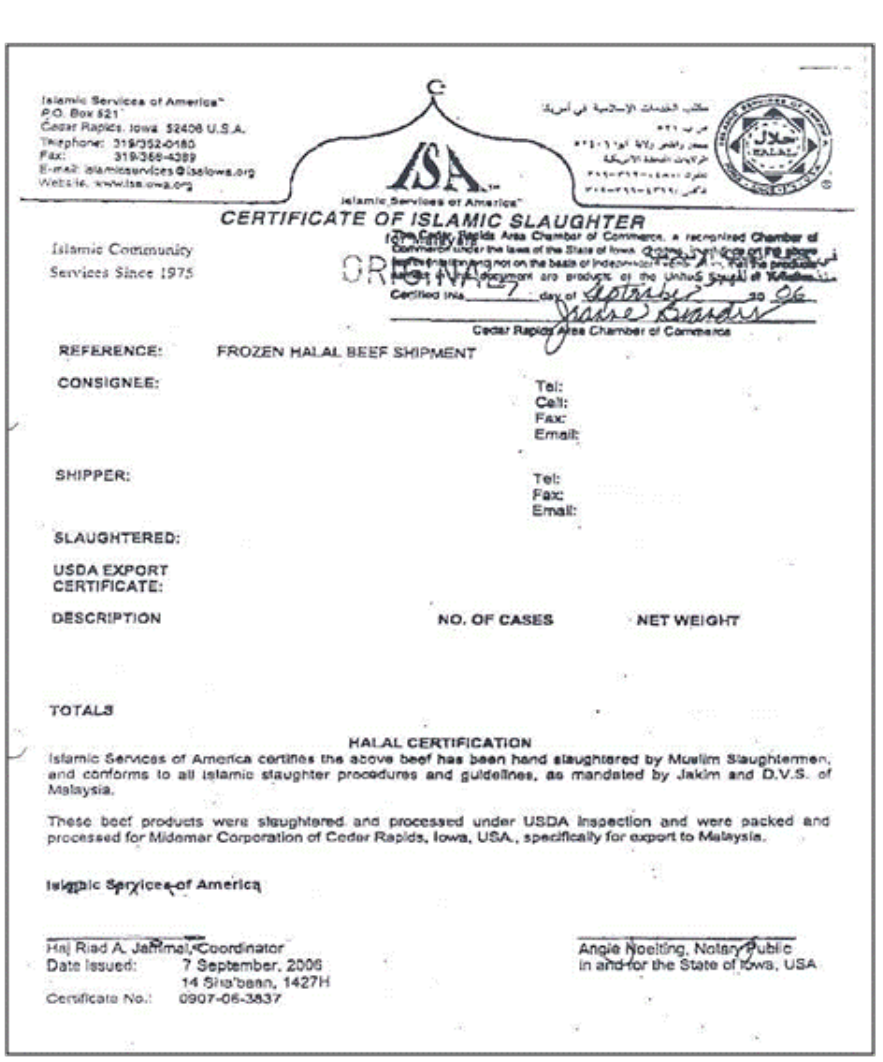
9
Appendix I. Electronic Copy or Outline of Each Export Certificate
EXAMPLE OF A HALAL EXPORT CERTIFICATE FOR MEAT PRODUCTS
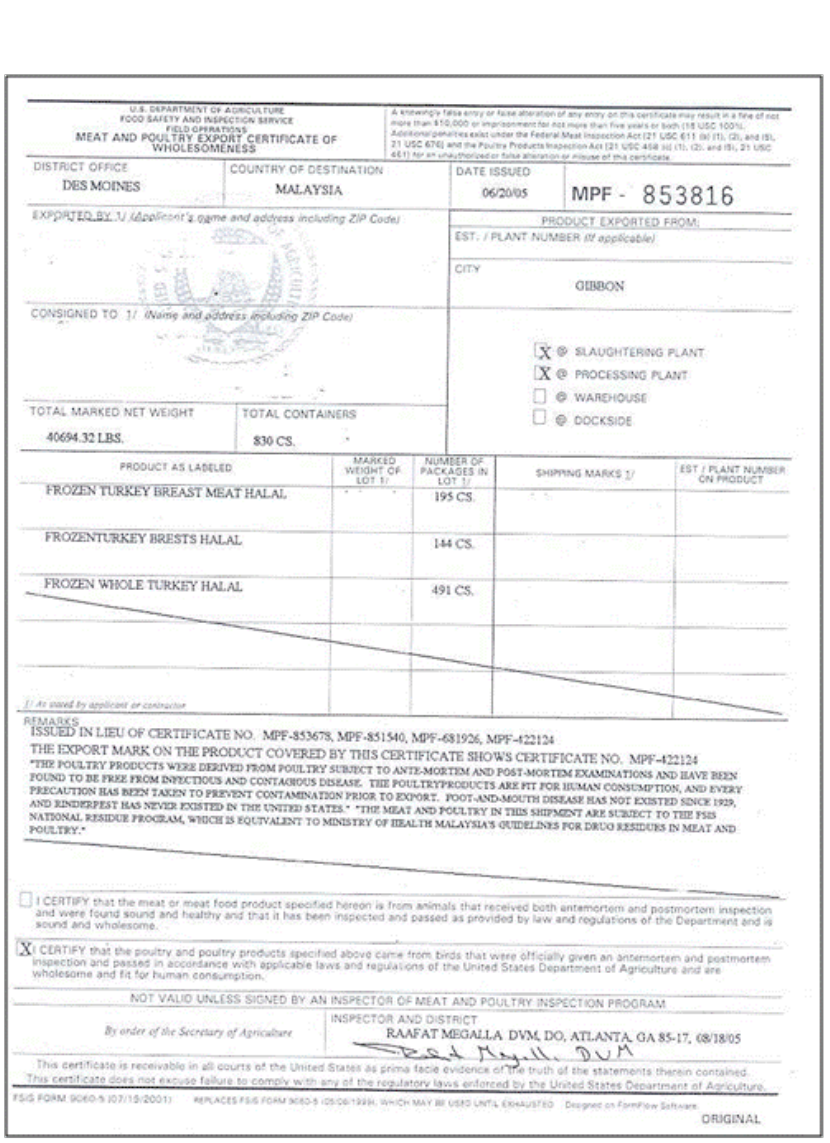
10
MEAT & POULTRY EXPORT CERTIFICATE OF WHOLESOMENESS
(FSIS FORM 9060-5)
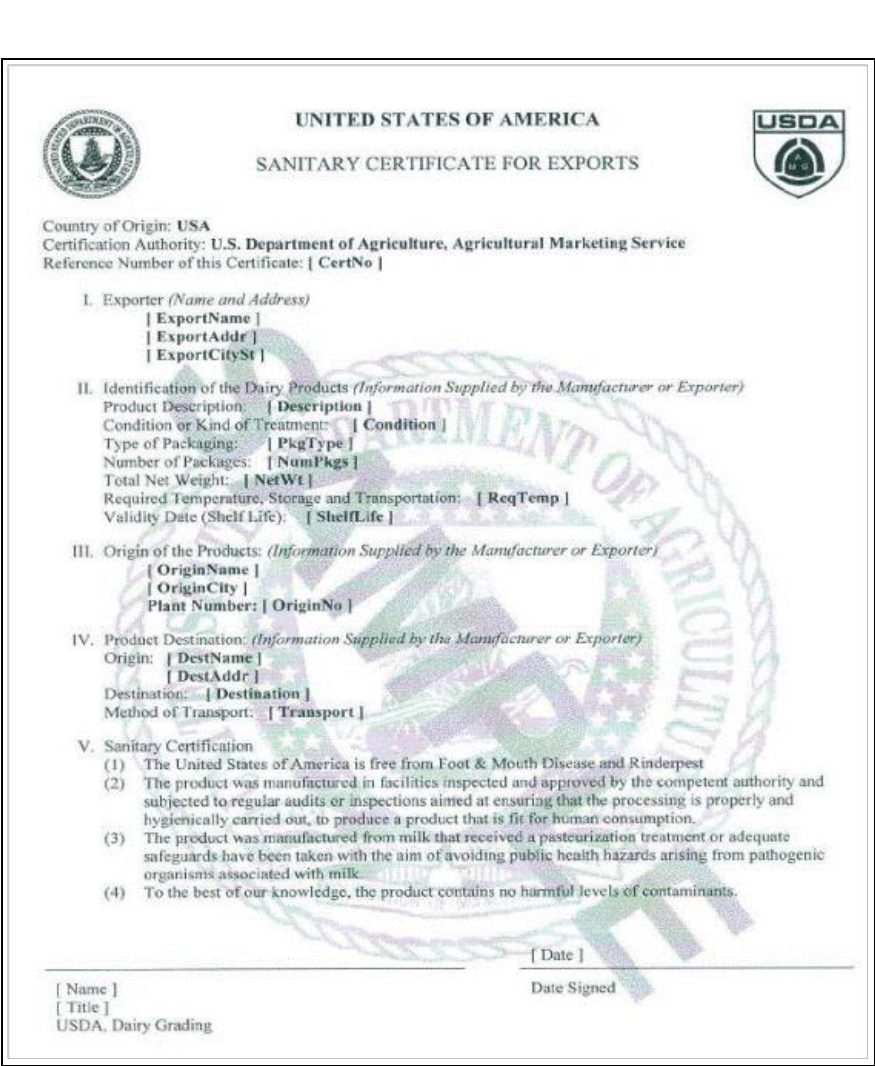
11
SANITARY CERTIFICATE FOR DAIRY PRODUCTS
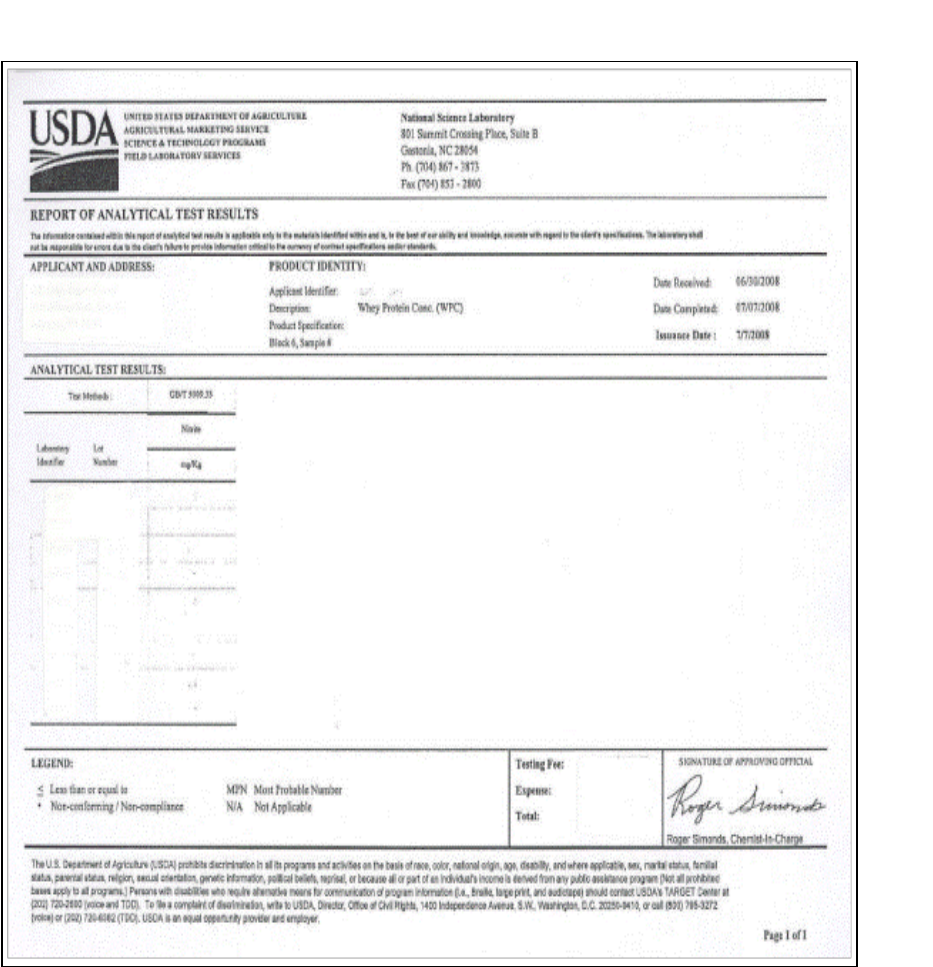
12
CERTIFICATE OF ANALYSIS (LISTERIA MONOCYTOGENES) FOR SOFT CHEESE
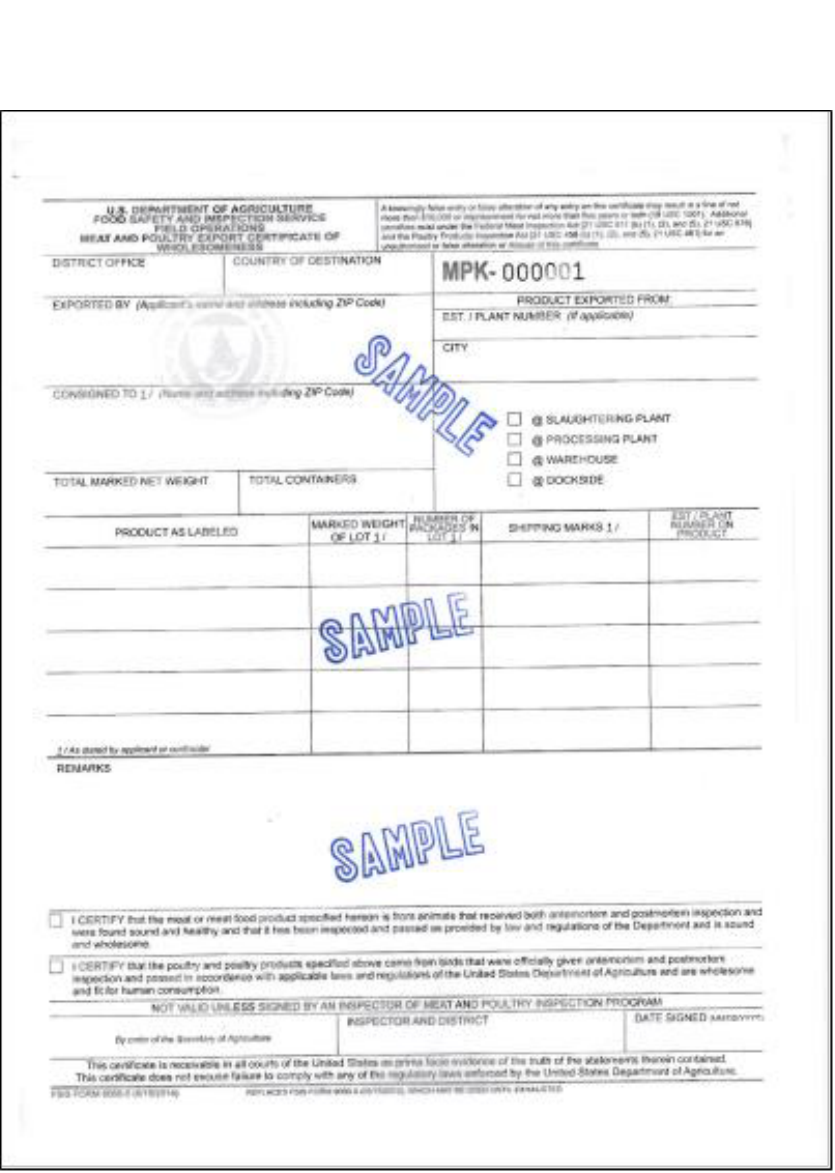
13
VETERINARY HEALTH CERTIFICATE FOR PORK PRODUCTS
Sample A
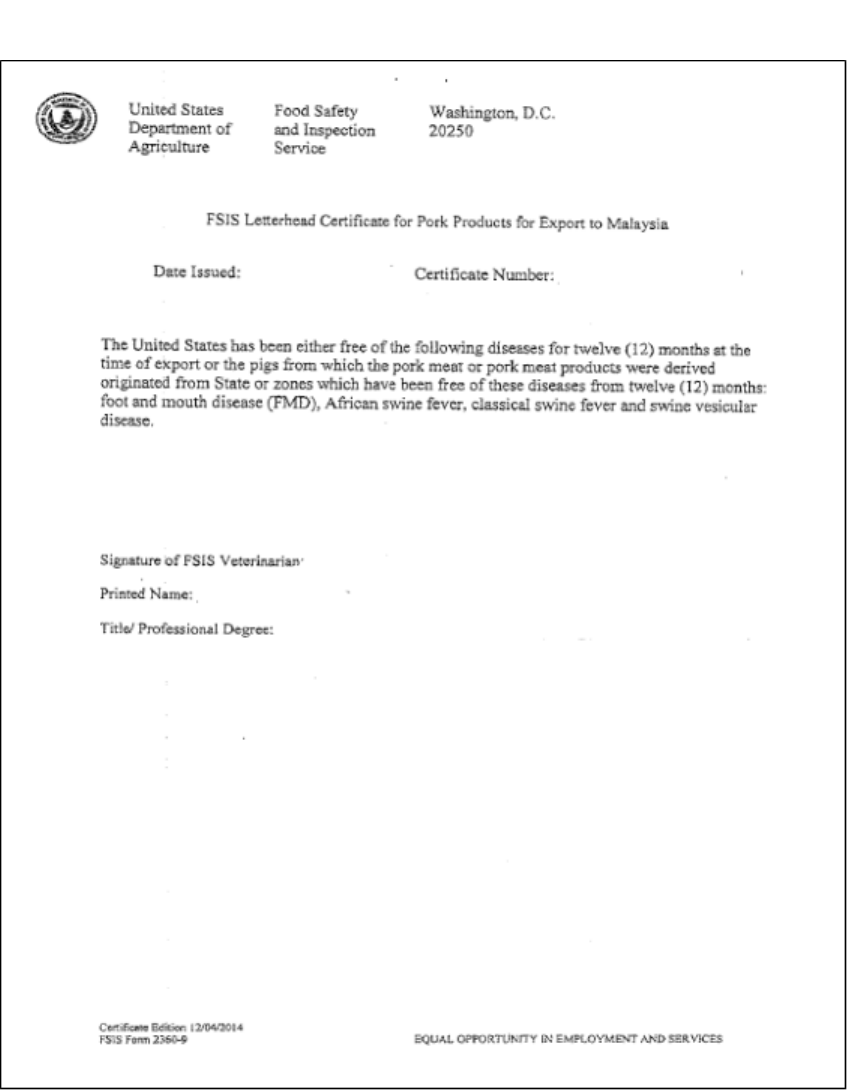
14
Sample B

15
HEALTH CERTIFICATE FOR FISH AND SEAFOOD PRODUCTS

16
FSIS LETTER CERTIFICATE FOR BEEF PRODUCTS
For a sample of Letterhead Certificate for the Export of Beef and Beef Products to Malaysia,
please click: https://www.fsis.usda.gov/sites/default/files/media_file/2021-02/malaysia-lamb-lhc.pdf
APHIS PHYTOSANITARY CERTIFICATE
For a sample of Phytosanitary Certificate PPQ Form 577, please click:
http://www.aphis.usda.gov/import_export/plants/plant_exports/downloads/ppq577.pdf
Attachments:
No Attachments
